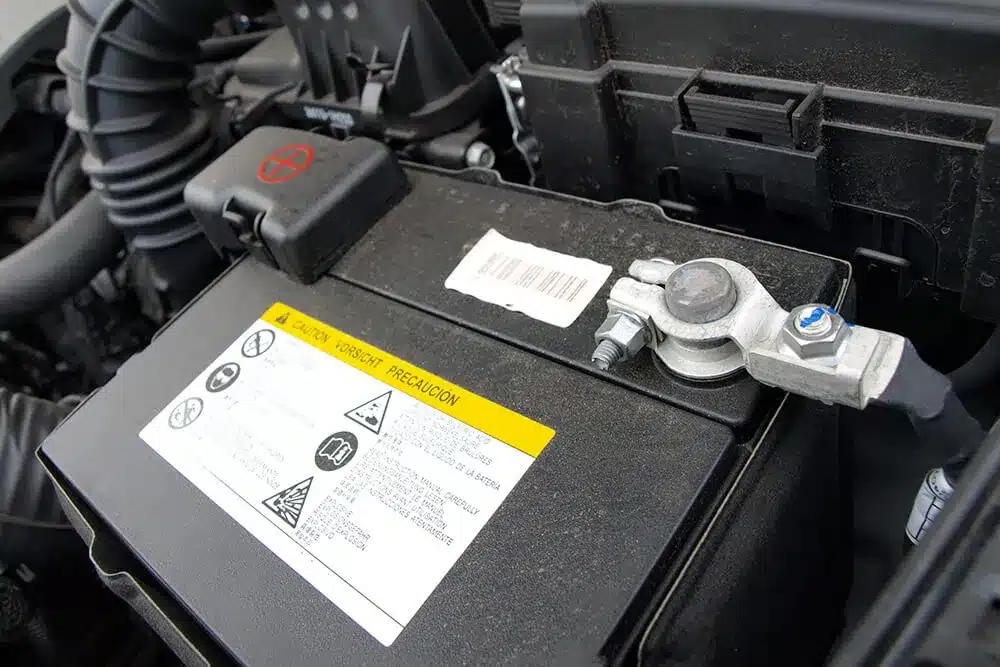Are you confused about the type of battery your car needs? What’s the difference between a lead-acid and an AGM battery? Do you need to purchase additional features with your next automotive battery purchase? First, we’ll review all the basics for choosing the correct auto battery for your vehicle. Then, we’ll explain what factors influence which type is best for you and provide helpful tips on ensuring longevity and performance from your new battery.
What is a car battery, and why is it essential for your vehicle’s performance
A car battery is the heart of your vehicle’s electrical system, providing the necessary power for your car to start and function properly. Imagine getting ready for a long drive with your family and friends, only to realize your car won’t start due to a faulty battery. It’s frustrating and can ruin your plans. However, a well-functioning car battery is crucial to your vehicle’s performance. Regular car battery maintenance, such as checking its charge level and terminals, can ensure its longevity and keep your car running smoothly.
Types of car batteries and how to select the right one for your vehicle
When it comes to car battery types, there are many options out there to choose from. It can be overwhelming when trying to figure out which is the right fit for your vehicle. However, with some research and knowledge, selecting the perfect battery for your car can be a breeze. Whether you need a traditional flooded lead-acid battery or a more modern lithium-ion battery, there’s a battery that will keep your vehicle running smoothly. So go ahead, take the time to research and make an informed decision, and rest easy knowing that your car battery is up to the task of keeping your vehicle on the road.
How to maintain a car battery – life expectancy, charge assessment, and more
Taking good care of your car battery will ultimately lead to a longer life expectancy, save you money on replacements, and prevent frustrating breakdowns. An excellent place to start is by keeping an eye on your battery’s charge level. If it’s consistently below 12.4 volts, it’s time to have it assessed by a professional. Additionally, it’s recommended to keep your battery clean and free of corrosion, as this can negatively impact its performance. Finally, avoid leaving electronics on when the car is not running, as this can unnecessarily drain the battery. Following these simple tips, you can keep your car battery healthy and running efficiently for years.
Different types of car batteries and their advantages
When it comes to car batteries, there are plenty of options. From lead-acid batteries to lithium-ion ones, the choices can be overwhelming. However, each type of battery has its advantages. For instance, lead-acid batteries are reliable and affordable, while lithium-ion batteries are lightweight and can last longer. In addition, gel batteries are incredibly resistant to vibration and shock, making them perfect for off-road adventures. Ultimately, it depends on your needs and budget. But no matter which type you choose, a good car battery is essential for the smooth running of your vehicle. So take the time to research which battery would be the best fit for your car and driving habits, and enjoy the peace of mind that comes with knowing you have a reliable power source under your hood.
Warning signs that indicate a failing or bad car battery
You rely on your car to get you from point A to point B safely and efficiently. One of the worst things that can happen is being stranded on the side of the road with a dead car battery. There are warning signs to watch that indicate when your car battery is failing or on its way out. For example, if your car takes longer to start, the lights seem dimmer than usual, or if you hear a clicking sound when you turn the key, it’s time to check your battery.
Tips on how to extend the lifespan of your car battery
Your car battery is crucial to your vehicle, powering everything from your headlights to your radio. To extend the lifespan of your car battery, there are a few simple tips to keep in mind. First, regularly check the electrolyte levels and top up with distilled water if necessary. Secondly, ensure all electrical components are turned off when the car is not in use, as this can unnecessarily drain the battery. Finally, use your vehicle regularly and avoid leaving it parked for extended periods without starting the engine.
In conclusion, car batteries are an essential element of any vehicle. Therefore, understand what type of battery best fits your automobile needs and how to maintain it to operate and depend on it safely and correctly. By knowing the types of car batteries available and the warning signs of a dying or unhealthy battery, you can make informed decisions that will best serve you and ensure long-term performance. Taking care of your car battery properly can go a long way in preserving its life expectancy and avoiding disruption in your travel plans. Just remember that if something does not seem quite right with your car battery, ask for professional assistance from an experienced auto repair shop!


